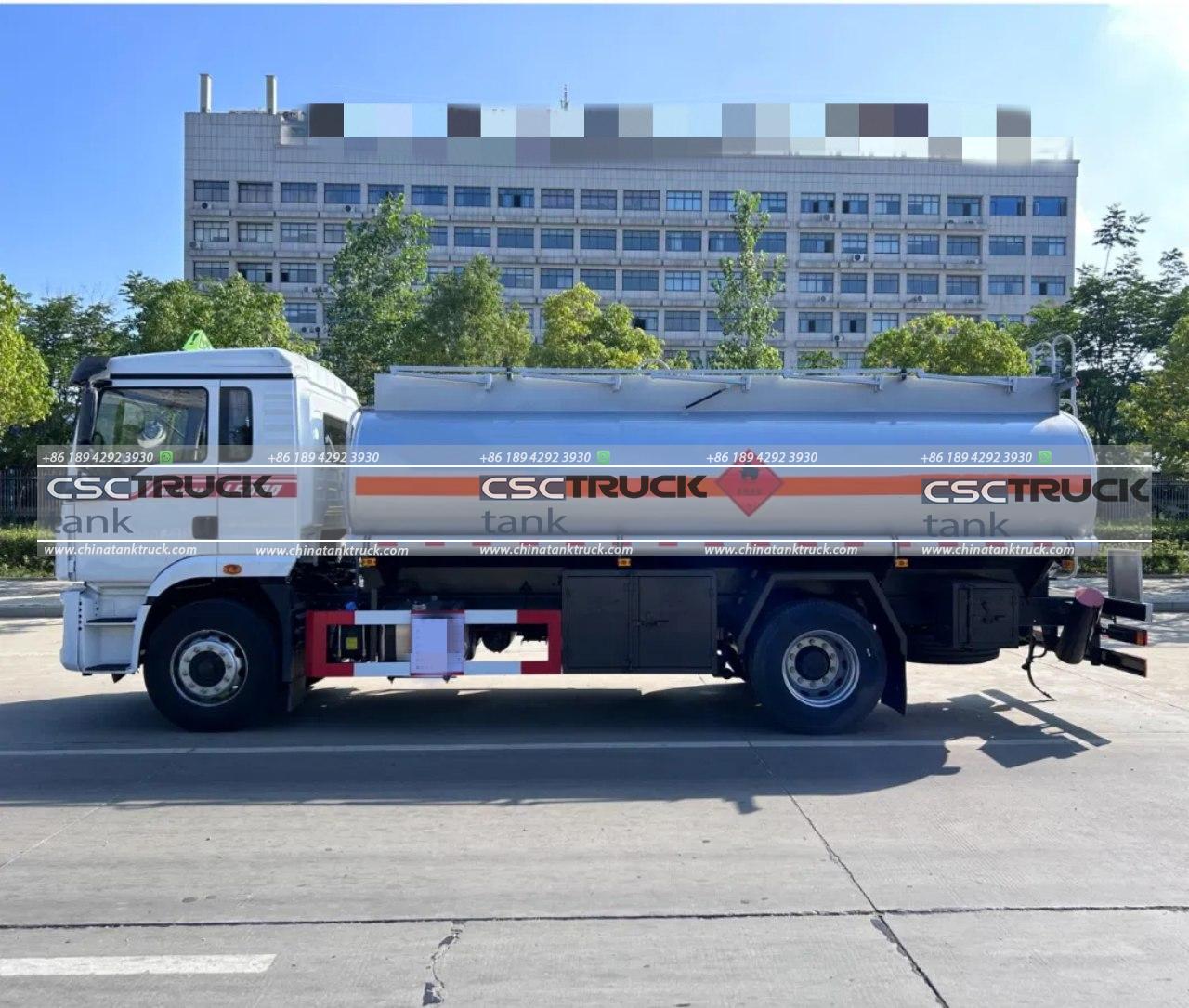When discussing truck fuel, most people immediately think of diesel. Diesel is indeed the standard fuel for most heavy-duty trucks worldwide, but there are nuances to the question of whether “truck fuel” is the same as diesel. While diesel is the most commonly used fuel for trucks, alternatives like biodiesel, compressed natural gas (CNG), liquefied natural gas (LNG), and even electric power have gained popularity. Here’s a closer look at why diesel is typically synonymous with truck fuel and the various other fuels in use today.
Why Diesel is the Standard Truck Fuel
Diesel fuel has long been the go-to choice for trucks for several reasons:
1. Energy Density: Diesel fuel contains more energy per gallon compared to gasoline, making it more efficient for long-haul trucks that require a lot of power and endurance. A single gallon of diesel can take a truck further than a gallon of gasoline, which is critical for vehicles designed for long-distance travel.
2. Engine Torque: Diesel engines produce a significant amount of torque, especially at lower RPMs. This torque is essential for trucks, which need power to haul heavy loads. Diesel’s efficiency in producing torque makes it ideal for trucks and commercial vehicles that operate with high payloads.
3. Durability and Longevity: Diesel engines are built to withstand high compression ratios, which makes them durable and long-lasting. This durability translates to less frequent engine overhauls and repairs, a significant advantage for the trucking industry.
4. Fuel Efficiency: Compared to gasoline engines, diesel engines are generally 20–35% more fuel-efficient. For long-haul trucking companies that consume fuel at large volumes, this efficiency reduces operational costs.

What Exactly Is Diesel Fuel?
Diesel fuel, derived from crude oil, belongs to a group of fuels known as distillates. It is different from gasoline in its chemical composition, being denser and more energy-rich, which suits the high-torque requirements of trucks. Diesel fuel can be classified into different grades, with most trucks using diesel No. 2, which has a slightly higher viscosity and energy content than diesel No. 1. In colder climates, a blend of diesel No. 1 and No. 2 is used to prevent fuel gelling.
Diesel fuel is standardized worldwide, but the sulfur content can vary by region. Low-sulfur diesel (LSD) and ultra-low-sulfur diesel (ULSD) are common, especially in the United States and Europe, where stricter environmental regulations require lower sulfur levels to reduce emissions.
The Rise of Alternative Truck Fuels
Although diesel remains the mainstay of the trucking industry, environmental and economic pressures have led to the exploration of alternative fuels. Each alternative fuel type offers unique benefits and challenges, and it’s not uncommon for trucking companies to have a mixed fleet of diesel and alternative-fuel trucks.
Here are some notable alternatives to traditional diesel fuel:
1. Biodiesel
– Biodiesel is made from renewable sources such as vegetable oils, animal fats, and recycled cooking grease. It is a drop-in fuel, meaning it can often be used in diesel engines without significant modifications.
– Biodiesel can be blended with petroleum diesel in various ratios (e.g., B5 is 5% biodiesel and 95% petroleum diesel, while B20 is 20% biodiesel).
– This fuel type reduces greenhouse gas emissions and is biodegradable. However, it can be more expensive than diesel and may perform poorly in very cold temperatures.
2. Compressed Natural Gas (CNG)
– CNG is a cleaner-burning fuel that produces fewer pollutants than diesel. It has become popular for short-haul trucks, especially in urban areas where emissions are a significant concern.
– CNG engines require separate fueling stations and can’t use diesel infrastructure, which limits its availability.
– Although CNG has a lower energy density than diesel, it has become a viable option for regional fleets in countries like the United States, where natural gas is abundant.
3. Liquefied Natural Gas (LNG)
– LNG is similar to CNG in terms of emissions but is stored as a liquid, which gives it a higher energy density and makes it suitable for longer distances.
– However, LNG infrastructure is still limited, and the fuel needs to be kept at extremely low temperatures to stay in liquid form, adding complexity to its usage.
4. Electric Power
– Although electric trucks are still relatively rare in the heavy-duty sector, they are gaining popularity for light-duty and medium-duty applications.
– Electric trucks produce zero tailpipe emissions and are particularly suitable for short-haul and city driving. However, the limited range of current battery technology, along with the need for extensive charging infrastructure, presents challenges.
– Major companies are investing in electric trucks as battery technology advances, and we may see more electric trucks on the roads in the coming years.
5. Hydrogen Fuel Cells
– Hydrogen fuel cell trucks are another emerging alternative. They produce electricity through a chemical reaction between hydrogen and oxygen, emitting only water vapor.
– Fuel cell technology promises to offer a greater range than battery-electric vehicles, but like CNG and LNG, it requires a unique fueling infrastructure.
– Hydrogen production and storage can be energy-intensive, but as green hydrogen (produced using renewable energy) becomes more feasible, this may become a viable solution for long-haul trucking.

The Cost of Switching from Diesel to Alternative Fuels
Switching from diesel to alternative fuels presents both economic and operational challenges. Diesel fuel is widely available, while alternative fuels require specialized infrastructure. For example, setting up a CNG or LNG fueling station can be expensive, and battery charging stations for electric trucks require significant electrical infrastructure. Additionally, retrofitting a diesel fleet to run on alternative fuels may be cost-prohibitive.
Moreover, the cost per gallon equivalent of CNG, LNG, and biodiesel can vary based on market fluctuations, local production capacities, and government incentives. Diesel’s established availability and price stability, on the other hand, often keep it as the most economical choice for long-haul trucking.
Environmental Impact and Emission Regulations
The trucking industry faces increasing pressure to reduce emissions, as transportation is a significant contributor to air pollution and greenhouse gases. Diesel engines, though efficient, produce pollutants such as nitrogen oxides (NOx) and particulate matter (PM). Regulations like the U.S. Environmental Protection Agency’s Tier 4 standards and the European Union’s Euro 6 standards limit these emissions, pushing companies to explore cleaner fuels and technologies.
Alternative fuels like biodiesel, CNG, and electric power produce fewer emissions than diesel, helping trucking companies meet these stricter regulations. Some governments offer tax incentives, grants, and rebates to encourage the switch to cleaner fuels. Despite this, diesel’s efficiency and established infrastructure keep it as a predominant fuel type, with many companies opting to use a blend of traditional and alternative fuels to balance cost and compliance.

The Future of Truck Fuel: A Mixed Approach
While diesel remains synonymous with truck fuel, the industry is steadily shifting toward a diverse energy mix. The future of truck fuel likely lies in a combination of diesel, biodiesel, natural gas, electric power, and hydrogen, depending on specific trucking needs and regional regulations. Long-haul routes may continue to rely on diesel and LNG for years to come, while electric and CNG trucks may dominate shorter routes, especially in urban settings.
As technology advances and infrastructure expands, trucking fleets will have more choices in fuel types, which can optimize cost, environmental impact, and performance. Diesel may no longer be the sole choice for trucks, but it will likely continue to play a central role in the transportation industry for the foreseeable future.

